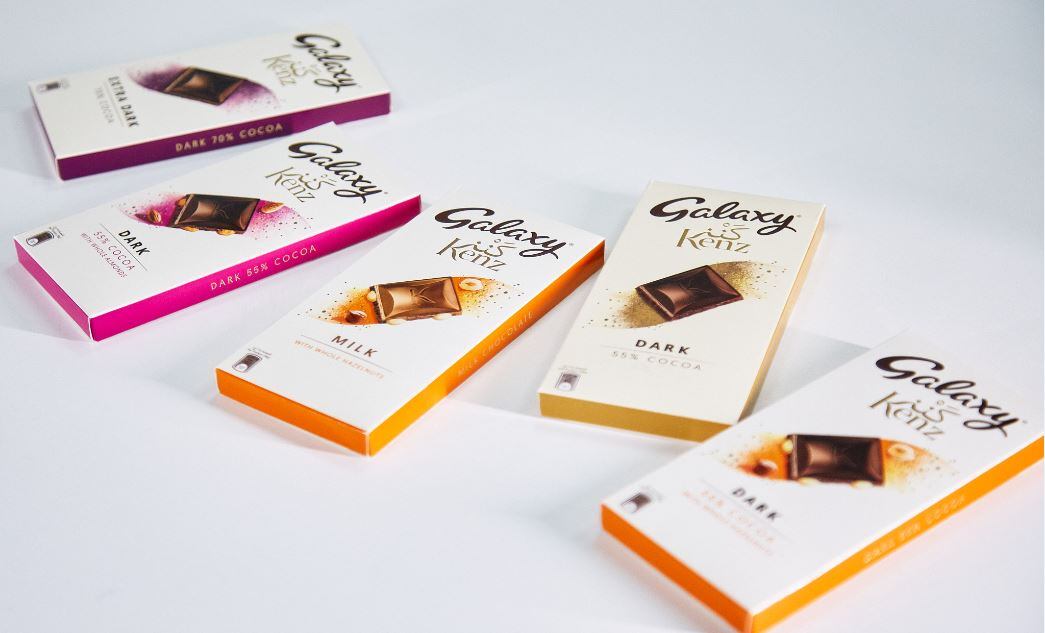According to Mars Wrigley GEM President Blas Maquivar, the GEM cluster was formed to bring together markets that shared specific commonalities into one business unit so as to be ‘in allocating the right investments and resources to these markets’.
“The GEM cluster now comprises about 150 countries within the whole of Asia except China, all of the Middle East, Latin America from Mexico to Brazil, and all of Africa – these are markets where we want to be more intentional in providing the right resources so as to accelerate growth,” Maquivar told FoodNavigator-Asia in an exclusive interview.
“Though there are definitely differences between the markets inside this cluster from India to Vietnam to Mexico, they all share some commonalities: First is a rapidly growing young population, then a clear prognosis of GDP growth, and importantly, a low penetration of categories that we compete in such as chocolate.
“For example, in Vietnam the average consumer buys an average of four chocolate bars or packs a year, similar in places like Taiwan, South Korea and Mexico – but the average consumer in markets like the United Kingdom average 30 bars or packs a year. So the penetration of chocolate across our emerging markets is far lower than elsewhere, from five to 15 times lower or more depending on country.”
The Mars Wrigley GEM cluster aims to increase the penetration of all these categories in these markets, basically employing strategies from the angles of price, format innovation, retail channels, flavours and more to get consumers in these emerging markets to eat more chocolate every year’.
“The aim is also to increase the relevance of chocolate to consumers in Asia or elsewhere – and we intend to do this via our Present Forward, Future Back strategy which we believe will cover all the bases,” said Maquivar.
“Present Forward refers to paying close attention to current retail channels – and in these emerging markets, one of the most prominent retail channels is the mom-and-pop stores spread in every corner of every city – we know we need to reach these stores and convince them to sell our products if we want to have good reach with local consumers.
“As such, we are aware that this is a challenge and there is really a lot of work to be done here to get our brands displayed in all of these small shops, whether it be Snickers or Orbit or Galaxy and so on, but we know how important the distribution here is in emerging markets so this is a core part of the strategy.”
As for Future Back, this is referring to the rising use of e-commerce within these emerging markets, a retail trend that Mars Wrigley does not intend to miss out on.
“E-commerce is a relatively new consumer retail trend now, but we can definitely see that it will be a very big one 10 to 15 years down the road across all the emerging markets,” said Maquivar.
“This has of course been accelerated by the arrival of COVID-19, with more and more people spending more time at home watching movies and socialising – occasions that did not exist previously are growing rapidly now, and we need to capture these markets.
“We’ve already started doing some e-commerce work – for example, Snickers set up an online Snickers Store on Indian delivery platform Swiggy so consumers have the option to order food delivery and just add in an order for a chocolate bar for dessert or some chewing gum to freshen up after the meal.
“So it’s a case of making a portfolio shift such that we not only look at normal physical stores in places like Asia, but also transform our efforts to accommodate new consumer trends – we believe a combination of Present Forward and Future Back is the right strategy forward to allow success in our GEM markets.”
Investment priorities
Of the over 150 countries that GEM oversees, it would be impossible to evenly allocate resources to all of these, and Maquivar told us that in the short term the focus would first be on 10 countries.
“It’s not to say that the remaining 140 markets are not important – they are, but we need to strategise and prioritise some of these to invest more in first so that we don’t dilute our resources too much, or this would not translate to any impact,” he said.
“We made our decision based on a lot of research into GDP, population growth, ability for products/categories to win, the government and economical environment, the competitive environment and many other variables before selecting 10 geographical markets to prioritise first.”
When asked which 10 these were, Maquivar said that he could not reveal this yet due to business strategy reasons but stressed that ‘Three and above come from the Asia Pacific region’.
Challenges
Maquivar highlighted affordability, distribution and taste relevance as the main challenges that Mars Wrigley is facing in emerging markets, particularly when none of the three can be considered less important than the others.
“Affordability is an important one as emerging market consumers have limited money in their pockets and tight budgets so when at a mom-and-pop store, they’ll choose how to spend this – and we need to provide value to them – not necessarily cheap products, but definitely value for money - to be chosen,” he said.
“Then of course there’s also the issue of distributing all our different brands from Snickers to Maltesers to Galaxy and more across the millions of mom-and-pop stores that exist in these markets – we really need a mosaic of these and may need to work with local wholesalers or the like.
“Finally is taste relevance which is a challenge in Asia as consumers are not that used to the chocolate taste as compared to the west because they have been less exposed to this – we need to make this taste more localised to the characteristics and flavours to make sure we are locally relevant, and provide value to consumers so they choose us
“So that’s really the aim – if we provide products at the right price point, are present in as many stores as possible and are locally relevant in terms of taste, then our penetration will definitely increase in these markets.”





